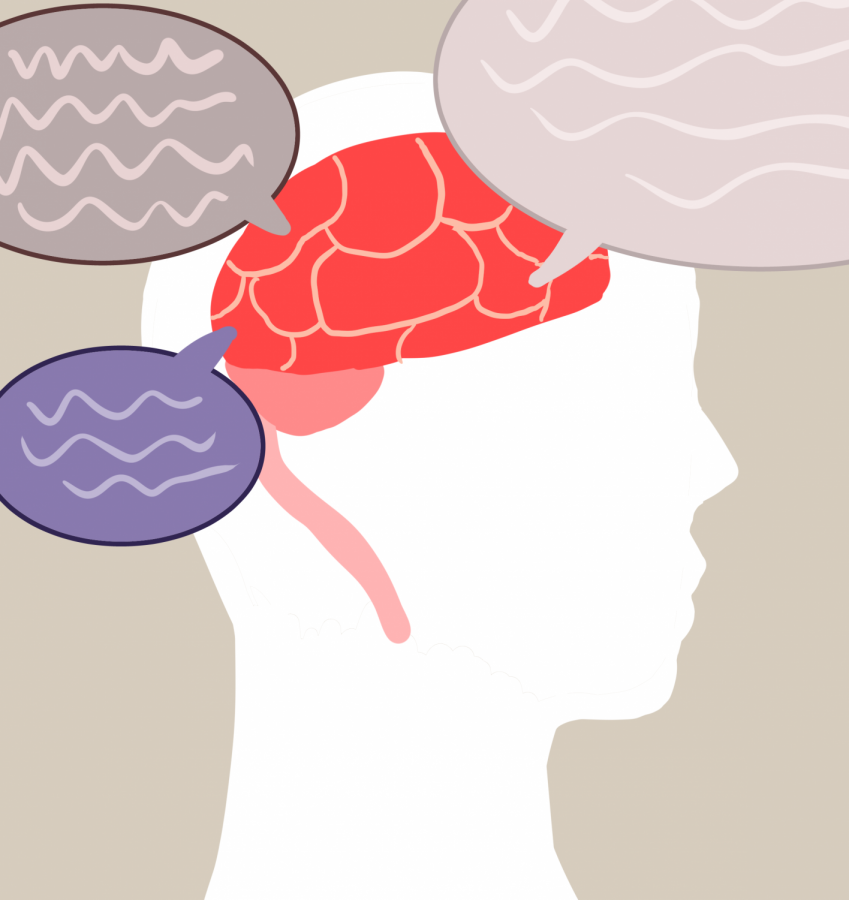OPINION: Be proactive talking about your mental health
Support your friends and family by being open to talking about mental health
It is easy to try to take on mental health issues by yourself, but this isn’t the best way to go through life.
April 8, 2020
In the last decade mental health has gone from a taboo to something heavily discussed in pop culture and the media. This rise in awareness for other people’s mental well-being has sparked a conversation about how we should handle the subject.
The important part of this conversation is distinguishing between one’s mental health and well being, and what would be considered a mental illness. For everyone there are things that may cause a shift in your mental well-being — something like a international pandemic maybe — but it is important to recognize that this probably won’t cause a long-term mental illness. The dip in mental health will eventually return to balance, though you may have been very anxious or depressed for a period and needed to practice better self care.
“There’s a difference between that mental toughness and struggling with your mental health,” Kym Hilinski, one of the founders of Hilinski’s Hope Foundation, said. “We just want all students to know that they are not weak if they ask for help, if they talk about their emotions. It takes strength to do that.”
The Hilinski’s Hope foundation strives to bring awareness to mental illnesses and destigmatize the conversation around mental health. A big part of their participation on college campuses is bringing the Step Up program to college sports teams. This program teaches players how to look out for changes in behavior from one another that may indicate a need for support. They also try to provide ways to start these conversations in a comfortable way.
Mental illnesses are a touchy subject, as for some this is the way they identify a long-term struggle with mental health problems. The way we initiate conversations about these topics can greatly affect the way someone else reacts to it. In this time of overarching anxiety and inherent reclusive behavior, it’s essential to have lighthearted check-ins with the people you care about regarding their — and your — mental well-being.
Curtis Cohen, the 2020 ASWSU President, made mental health a key element in his campaign. He said their platform for mental health support reform on campus centers around the introduction of a campaign partnered with the 7 Cups program. 7 Cups is an app and website committed to making change in the counseling industry by providing a more open form of communication and providing general training for peer to peer support.
“Mental health is far more universal and conversational, because everyone has their own mental health,” Cohen said.
The new peer to peer training might not be available right now, but right now is definitely a time where you can start asking your friends what types of things you can do for them. Providing your peers with the support they need in return for the support you need can provide both of you with beneficial aid in a time of need. The rapid changes in the world right now create an air of stress and anxiety that affects everyone.
With everything going on, self-care and emotional awareness are going to become necessary skills. The need for social distancing and limiting physical contact with one another is essential to try to maintain the health of our communities. So, with this it is time to start the conversations with the people in your life about how they are doing, and what they are doing for themselves in this.

















